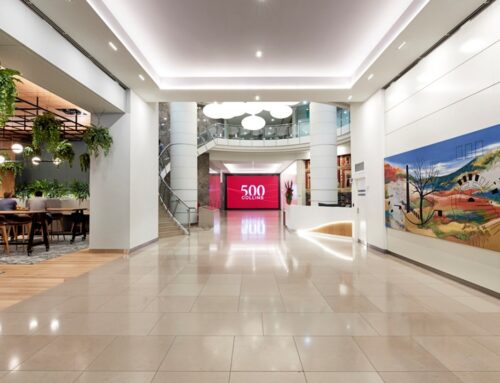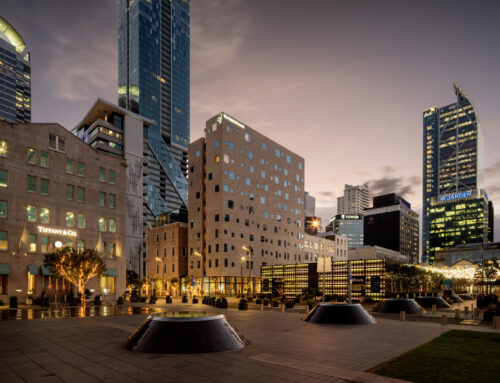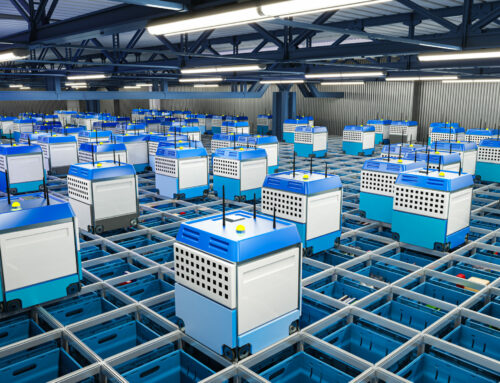Stuart Fowler is in his tenth year as CEO of NDY. The focus of the business has grown considerably during this time – from improving financial health and margins to expanding global reach and fostering international collaboration, as part of Tetra Tech.
In his role, Stuart works closely with colleagues and clients in the United States, Canada, Australia, New Zealand, the United Kingdom and Ireland to help deliver projects globally. We asked him where he sees the greatest potential for the built environment in 2025.
What’s NDY’s focus this year?
Decarbonisation
Decarbonisation and electrification are key themes in all the markets we operate in across the globe.
This is being led by market pressures; our clients are seeking to do the right thing in response to climate change – to be good global corporate citizens. That’s also being driven by government regulation at national, state and municipal levels. Governments across the world are increasingly focused on establishing regulatory frameworks and cultures to support decarbonisation.
The built environment is responsible for an estimated 40 per cent of carbon emissions so it has an important role to play in decarbonising our future. We’re already involved in some impressive decarbonisation projects with significant growth expectations in the years ahead.
The City of Los Angeles, for instance, is very actively reviewing and implementing strategies to decarbonise its entire buildings’ portfolio. The municipality has engaged Glumac as part of that undertaking (also part of Tetra Tech), to review a portfolio of 1,200 buildings. So, we’re seeing organisations taking action in terms of decarbonisation practices, at both a corporate and government level.
In some cases, on-the-ground community sentiment is forcing corporations to be on the front foot. Company boards are acutely aware of what investors and the broader public expect and this is driving environmental, social and governance (ESG) strategies. They’re aware of the imperative to behave in a manner that satisfies customers, shareholders and beneficiaries, including the wider community.
Adaptive reuse
There’s no doubt that the COVID pandemic had, and continues to have, a significant impact on the commercial office market. It changed the nature of work for a significant number of office workers globally. Vacancy rates are at very high levels in cities around the world. In every city I travel to as part of my role, I still see sizeable office buildings sitting, largely empty, for many days a week.
Tenants have taken the opportunity in terms of a significant ‘flight to quality’ – moving to better buildings with green credentials, maybe taking the opportunity to downsize and relocate to a more desirable location. This is leaving many B- and C-grade commercial office assets largely empty. What do we do with these? How do owners respond?
In many cases – particularly given the current economic climate – it’s not cost effective to refurbish or upgrade these buildings to the level that tenants are demanding. There are alternative use cases for some but more often there’s not. So, that’s where the conversation is focussed in the commercial office sector where we’re active. What can we do with these assets?
Every city has different planning and regulatory frameworks and, in some jurisdictions, these are evolving to encourage appropriate adaptive reuse of buildings. For example, can buildings that are presently designated as commercial office be converted to residential? Does the regulatory environment in a particular location support that? And what can governments and municipalities feasibly do to assist?
Artificial intelligence and data centres
Another growth area for our business is the global data centre sector, in response to developments in artificial intelligence (AI). AI is hugely interesting from two viewpoints.
Firstly, what does the new technology mean for our business and other professional services’ businesses across the world? How will our own company be impacted by AI and what it can achieve?
And, secondly, all new technology needs to be supported by sufficient infrastructure that allows it to be delivered to the desktop. AI needs sizable increases in server capacity which means more data centres globally that, in turn, require a lot more electrical power to operate. This increased power load also generates additional heat output and requires increased data centre cooling capacity to function.
We have a significant amount of work in the data centre and mission critical sector as we prepare for the massive increase that’s expected in server capacity across the globe due to the demands of AI.
Of the regions that we operate in, the US is leading the way. US-based chip manufacturers and data centre providers are leading the global thinking and direction, and we’re excited to be working with several global leaders in the sector. The innovation we are a witness to is impacting activity and design direction around the world – it’s an exciting time to be in the data centre space.
How does NDY share resources and knowledge across global teams?
Sharing resources
NDY has offices in Australia, New Zealand, UK, Canada, and Ireland, but we also have NDY staff working on projects through the US, Europe, and Asia. And we have US and UK based Tetra Tech colleagues supporting NDY projects in our various NDY locations. We’re able to leverage knowledge and innovation through our Tetra Tech network to bring the innovation and skills from different regions and share this with our clients and projects locally.
This is certainly one of the significant upsides of NDY being part of Tetra Tech – the capacity to be part of solutions for projects anywhere in the world and, importantly, to bring the latest technologies to projects in our own backyard. NDY has evolved from being predominantly Australian based to being part of a global organisation working with global clients, delivering projects around the world.
How do you see these priorities evolving over the next 10 years?
I’m blown away by what’s happening with AI and how that will impact the work we do and how we live. Of course, there’s a massive upside potential but significant risk as well. For me, it’s fascinating to understand the AI technologies that are in use now and see how these are being employed in diverse ways to reengineer our work processes.
I can’t tell you what it’s going to be like in 10 years’ time but I’m certain the world will be a very different place.
Every technology that has come along through history has caused impact. But, as some jobs become redundant, new jobs always form. That’s the way it’s always been and I think that will continue to be the way. AI won’t mean that we’re all out of work, it will likely mean that our roles might be markedly different in terms of what we’re doing day-to-day.
The last ten years, for me, seems to have gone in the blink of an eye. It represents a quarter of my career. I’m so privileged to work with the incredible people at NDY and Tetra Tech – colleagues from around the world delivering projects that really do make a meaningful difference to the lives of so many people.
As we continue to grow the Tetra Tech High Performance Buildings Group’s presence globally, sharing our knowledge and skills across regions will continue to benefit clients locally. On highly complex projects, that’s our imperative – bringing together the best global minds to solve a pressing challenge and then sharing solutions that advance other projects. This is how we bring out the best in our people, foster meaningful collaboration and make a real difference to the global built environment.










